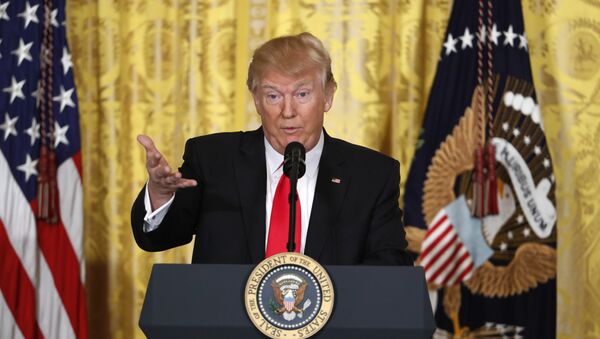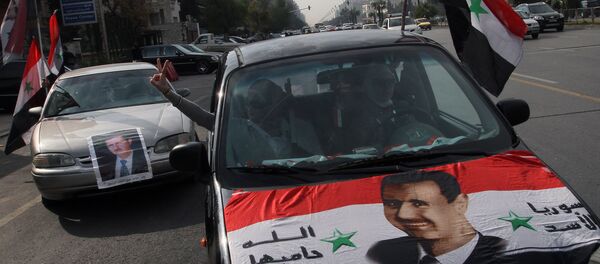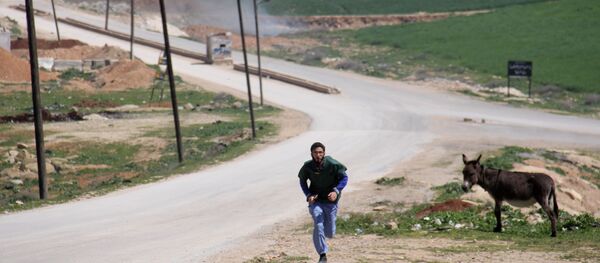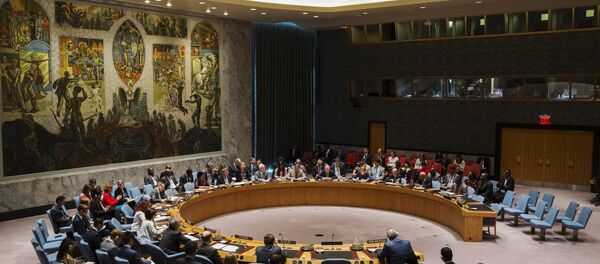A UN Security Council meeting was called by the United States to discuss the issue, while the UN said it could not verify if the attack took place. The Organization for the Prohibition of Chemical Weapons (OPCW) has set up a Fact Finding Mission (FFM) to gather information about the alleged incident.
In turn, Russian Defense Ministry spokesman Maj. Gen. Igor Konashenkov said that Syrian aircraft have conducted an airstrike near the town of Khan Shaykhun in Idlib province on the warehouse of terrorists’ ammunition and the mass of military equipment, where chemical weapons' ammunition had also been stored and delivered to Iraq.
On Wednesday, Russian Foreign Ministry spokeswoman Maria Zakharova reiterated the version, adding that White Helmets and the Syrian Observatory for Human Rights (SOHR) cannot be considered reliable sources of information.
"Currently, the main goal is to objectively figure out what happened. So far, I want to emphasize that falsified reports on this issue come only from the notorious White Helmets and the Syrian Observatory for Human Rights that has already become infamous. Neither the White Helmets, nor the SOHR can be trusted. They have repeatedly undermined trust by [making] fake footage and [reporting] information later denied by all parties," she said at a weekly press briefing.
Trump called the alleged attack "reprehensible" and one that "cannot be ignored by the civilized world."
"These heinous actions by the Bashar al-Assad regime are a consequence of the past administration's weakness and irresolution," he said in a statement.
Trump referred to four years ago when his predecessor Barack Obama failed to deliver on his "red line" when he did not authorize a military operation against Assad.
In September, eleven G20 country members endorsed the possible US intervention, even bypassing a mandate from the UN Security Council.
Due to Moscow’s diplomatic efforts, an intervention by US troops was prevented. In September 2013, the OPCW approved a plan to destroy Syrian chemical weapons and a UN resolution on the matter was passed. By summer 2014, all chemical weapons were withdrawn from Syria. In September 2014, a US-led international coalition launched a military operation against Daesh and other terrorist groups in Syria and Iraq.
However, a draft resolution on the recent incident proposed by the US, Britain and France to the UN Security Council has once again brought up the subject of Damascus’ responsibility for chemical attacks.
Washington’s involvement in the resolution and Trump’s harsh statements on Damascus can be explained by the fact that the US president is currently "testing the waters" and wants to find out where he "could play the American card," according to political analyst Kirill Koktysh.
"Trump’s priority is the domestic media front and he will make statements concerning the hottest topics on the agenda. But such statement will not reflect any solid attitude. In fact, the White House will take into account the actual situation," Koktysh told the Russian online newspaper Vzglyad.
Despite the fact that ousting Assad is no longer a goal for Washington, there will be no dramatic change in the US policy in Syria, according to Sergei Karaganov, head of the Department of World Economics and World Politics, at the Higher School of Economics.
"The situation has already developed. The US political bureaucracy is very hard to change. This momentum prevents the new US presidential administration from becoming independent and sticks it to the policy of its predecessors," Karaganov said.
Commenting on Trump’s statement about the incident in Idlib, the expert argued that the US President may have been misinformed.
"Probably, the report about a chemical attacks was disinformation and the following allegations are propaganda by US intelligence," Karaganov said.
Never miss a story again — sign up to our Telegram channel and we'll keep you up to speed!






